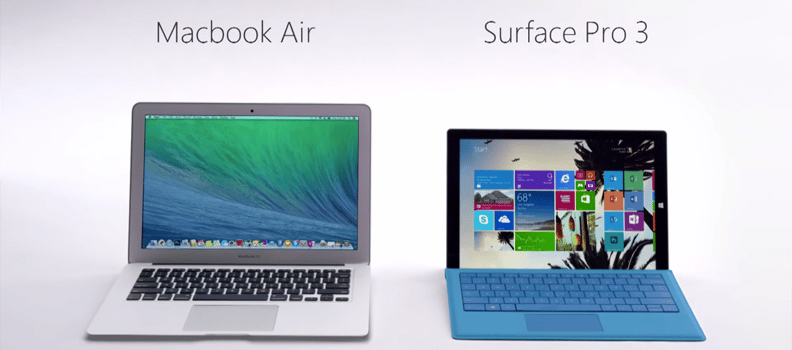once heard a saying that goes something like this:Comparison can only lead to two things – pride or despair.Now in the case of advertisers, comparison is a tactic essentially used to say, “Hey, we’re better than those guys.” Unfortunately, in the same way that people don’t appreciate being compared negatively to others, I don’t think consumers appreciate this approach. This in turns, makes it potentially ineffective in driving brand awareness and sales (see Forbes article below about Apple marketshare).
Here are a few reasons:
- When brands spend half of their (expensive) allotted commercial time talking about the “other guy,” they miss out on the opportunity to let you know how really, TRULY great they are.
- Featuring a specific competitor brand or product actually increases awareness and mindshare about that brand/product. As the (somewhat flawed) statement goes, “No press is bad press…”
- Comparison can cause a perception that you don’t have enough great features and benefits of your own to tell the viewer about.
- Thirty seconds isn’t long enough to tell two distinct stories, so comparison ads rarely show products being used in real life in moving, compelling ways.
Interestingly, no other brand has been publicly compared to more in advertising than Apple. It could be due to their growing marketshare (source: Forbes), both in the US and worldwide, the latter of which might be due to their lack of comparison marketing. Regardless, here are two examples of what I’ll call “comparison marketing” with Apple products and why it doesn’t work as well as non-comparison marketing.In this spot, I haven’t been told a single thing about the Note. Not one single feature or benefit. And, in my opinion, it is only mildly humorous – certainly not enough to make the Galaxy brand memorable or inspire me to consider buying one.In comparison to the previous spot, Samsung does a beautiful job of highlighting a main feature of the Galaxy Note 4 – one that happens to be a major differentiator between itself and the iPhone 6. Plus, it tells me why they included it and shows mini vignettes of why this is important. More like this, please!While this spot lets me know some benefits of the Surface Pro 3 compared to an Apple Macbook, I actually now have the Macbook on my mind/radar. The Microsoft brand is somewhat diminished as far as mindshare because they showed a nice looking laptop. If I’m not in the market for a tablet that can replace a laptop, they might have just sold me a Macbook! And, worse, besides the somewhat distracting music, this spot almost feels like an Apple commercial – stark white background, devices and hands only, but without the humor and cool factor Jimmy Fallon and Justin Timberlake bring to the latter.Unlike the device-only example above, Microsoft does a nice job demonstrating exactly how its Surface Pro 3 can replace a laptop through a “day in the life of” type of vignette of what I’m guessing is its target consumer. I learned much more from this commercial, it was nice to see real-life use-case scenarios, and the Surface Pro 3 brand was kept top of mind.In fairness, the comparison ads ran among other (similar) spots , and I am comparing them in a vacuum. Still, with such little time to capture the attention of consumers today, I think wasting time talking about your competition is a miss.
While I don’t think we’ll see an end to comparison marketing in the near future, I hope brands realize that many consumers are more likely to sit up and take note (no pun intended) of brands who toot their own horn instead of making fun of someone else’s.
Do you think comparison marketing works, and why?

